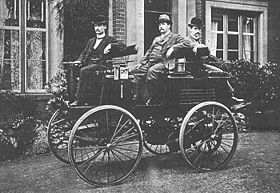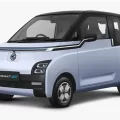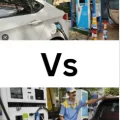Electric cars are no longer a novelty; they are becoming increasingly popular as the world shifts to more sustainable transportation. As the need to reduce greenhouse gas emissions and increase awareness of climate change grows, electric cars are seen as a viable solution. In this article, we will explore the history of electric cars, their advantages and disadvantages, how they work, and their potential to revolutionize sustainable transportation.
History of Electric Cars:
Electric cars were invented in the 19th century, but they gained popularity in the 1990s as an alternative to gasoline cars. General Motors launched the first mass-produced electric car, the EV1, in California in 1996. However, it was later discontinued due to low demand. Tesla’s launch of the Roadster in 2008 marked a turning point, and electric cars became more mainstream with more automakers now offering electric models.
Advantages of Electric Cars:
Electric cars offer reduced environmental impact. Unlike gasoline cars, they do not emit harmful pollutants that contribute to air pollution and climate change. They are also energy-efficient and cost-effective, as electricity is generally cheaper than gasoline. Additionally, electric cars have fewer moving parts and require less maintenance, resulting in lower long-term ownership costs.
Disadvantages of Electric Cars:
While electric cars offer many benefits, there are also some drawbacks to consider. The initial purchase price of an electric car is often higher than that of a gasoline car, and charging infrastructure is still limited in some areas. The range of electric cars is also generally lower than that of gasoline cars, although advancements in battery technology are improving this.
How Electric Cars Work:
Electric cars are powered by electric motors and rechargeable batteries, which store energy to power the motor. When the battery is low, it needs to be recharged using a charging station or a home charger. There are three types of electric cars: Battery Electric Vehicles (BEVs), Plug-in Hybrid Electric Vehicles (PHEVs), and Hybrid Electric Vehicles (HEVs). BEVs rely solely on battery power, while PHEVs have both a battery and a gasoline engine, and HEVs have a smaller battery and are primarily powered by gasoline.
The Future of Electric Cars:
The future of sustainable transportation looks promising with the rise of electric cars. Governments around the world are introducing policies to encourage electric car adoption, such as tax incentives, subsidies, and restrictions on gasoline cars. Automakers are also investing heavily in electric cars, with plans to phase out gasoline cars in the coming decades. Advancements in battery technology and charging infrastructure are improving the range and charging times of electric cars, making them a more practical and convenient option for drivers.
Conclusion: The rise of electric cars is a promising development in sustainable transportation. With their reduced environmental impact, energy efficiency, and lower long-term ownership costs, they are becoming an increasingly popular choice for drivers worldwide. Although there are some drawbacks to consider, such as the initial purchase price and limited charging infrastructure, electric cars’ future looks bright as governments, automakers, and consumers prioritize sustainability and environmental responsibility.












